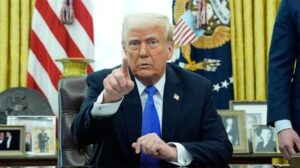Kenya Commercial Bank (KCB) has been at the center of serious allegations involving collusion with judges to defraud ordinary Kenyans of their assets. The long-running case of Captain Kungu Muigai, a relative of former President Uhuru Kenyatta, exposes how powerful institutions like KCB can allegedly manipulate the judicial system for profit.
Muigai claims that KCB wrongfully seized his family’s Muiri coffee estate, valued at over 3.5 billion shillings, after auctioning it for just 70 million shillings to Bidii Kenya Limited, which later resold it at its true value.
The bank allegedly used forged court documents to justify this sale, showing a pattern where ordinary citizens are left with no recourse while banks benefit from undervalued assets.
The saga began in 1989 when Muigai applied for a 23 million shilling loan through his company, Benjoh Amalgamated Limited, to start a flower export business. KCB reportedly disbursed only 9 million shillings and later halted the loan process, citing Muigai’s political activities.
His case in the High Court dragged on for decades, amid claims of manipulated rulings and forged consent judgments.
Muigai alleges that judges at various levels, including Supreme Court judges Isaac Lenaola, Martha Koome, Mohammed Ibrahim, Njoki Ndung’u, and William Ouko, were bribed to uphold decisions favoring the bank.
At the Court of Appeal, judges namely Daniel Musinga, Sankale ole Kantai, and others allegedly dismissed favorable rulings without proper review.
Retired judges and historical figures have also been implicated, with reports of bribes exchanged in hotels, supermarkets, and through intermediaries, totaling millions in shillings and even dollars.
The human cost of this alleged corruption became evident with the tragic death of lawyer Mathew Kyalo Mbobu. Mbobu, who was representing Muigai, was shot in a drive-by attack near Galleria Mall along Magadi Road.
Police reports indicate that he was trailed by boda boda riders before being gunned down on Tuesday evening.
His killing came shortly after Muigai publicly named judges and detailed bribe figures, raising questions about a possible link between his death and the case.
Mbobu, a law lecturer and former chairman of the Political Parties Disputes Tribunal, had evidence of judicial corruption involving 2.5 million dollars.
These events highlight the dangers faced by those challenging powerful entities like KCB and a compromised judiciary.
Kenyans have long suffered from cases where banks foreclose properties without proper accounting, and judges allegedly accept bribes to overlook injustices. Muigai’s petitions to the Judicial Service Commission were ignored, fueling perceptions of a system rigged against ordinary citizens.
Calls for accountability, including resignations for implicated judges, have grown louder. The death of Mbobu is a stark reminder of the risks of exposing corruption and the urgent need for thorough investigations to protect Kenyans’ rights and restore faith in the judiciary.
This case is a clear warning that without transparency and accountability, powerful institutions can continue to exploit loopholes and collude to the detriment of ordinary citizens, costing lives, livelihoods, and trust in Kenya’s legal and financial systems.





















Add Comment